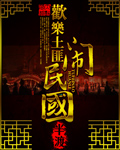LETTER 318
您可以在百度里搜索“The Works of Charles and Mary Lamb — Volume 6 艾草文学(www.321553.xyz)”查找最新章节!
LETTER 318
CHARLES LAMB TO JOHN BATES DIBDIN
[No date. Probably 1823.]
It is hard when a Gentleman cannot remain concealed, who affecteth obscurity with greater avidity than most do seek to have their good deeds brought to light—to haye a prying inquisitive finger, (to the danger of its own scorching), busied in removing the little peck measure (scripturally a bushel) under which one had hoped to bury his small candle. The receipt of fern-seed, I think, in this curious age, would scarce help a man to walk invisible.
Well, I am discovered—and thou thyself, who thoughtest to shelter under the pease-cod of initiality (a stale and shallow device), art no less dragged to light—Thy slender anatomy—thy skeletonian D—— fleshed and sinewed out to the plump expansion of six characters—thy tuneful genealogy deduced—
By the way, what a name is Timothy!
Lay it down, I beseech thee, and in its place take up the properer sound of Timotheus—
Then mayst thou with unblushing fingers handle the Lyre "familiar to the D——n name."
With much difficulty have I traced thee to thy lurking-place. Many a goodly name did I run over, bewildered between Dorrien, and Doxat, and Dover, and Dakin, and Daintry—a wilderness of D's—till at last I thought I had hit it—my conjectures wandering upon a melancholy Jew—you wot the Israelite upon Change—Master Daniels—a contemplative Hebrew— to the which guess I was the rather led, by the consideration that most of his nation are great readers—
Nothing is so common as to see them in the Jews' Walk, with a bundle of script in one hand, and the Man of Feeling, or a volume of Sterne, in the other—
I am a rogue if I can collect what manner of face thou carriest, though thou seemest so familiar with mine—If I remember, thou didst not dimly resemble the man Daniels, whom at first I took thee for—a care-worn, mortified, economical, commercio-political countenance, with an agreeable limp in thy gait, if Elia mistake thee not. I think I sh'd shake hands with thee, if I met thee.
[John Bates Dibdin, the son of Charles Dibdin the younger and grandson of the great Charles Dibdin, was at this time a young man of about twenty-four, engaged as a clerk in a shipping office in the city. I borrow from Canon Ainger an interesting letter from a sister of Dibdin on the beginning of the correspondence:—
My brother … had constant occasion to conduct the giving or taking of cheques, as it might be, at the India House. There he always selected "the little clever man" in preference to the other clerks. At that time the Elia Essays were appearing in print. No one had the slightest conception who "Elia" was. He was talked of everywhere, and everybody was trying to find him out, but without success. At last, from the style and manner of conveying his ideas and opinions on different subjects, my brother began to suspect that Lamb was the individual so widely sought for, and wrote some lines to him, anonymously, sending them by post to his residence, with the hope of sifting him on the subject. Although Lamb could not know who sent him the lines, yet he looked very hard at the writer of them the next time they met, when he walked up, as usual, to Lamb's desk in the most unconcerned manner, to transact the necessary business. Shortly after, when they were again in conversation, something dropped from Lamb's lips which convinced his hearer, beyond a doubt, that his suspicions were correct. He therefore wrote some more lines (anonymously, as before), beginning—
"I've found thee out, O Elia!"
and sent them to Colebrook Row. The consequence was that at their next meeting Lamb produced the lines, and after much laughing, confessed himself to be Elia. This led to a warm friendship between them.
Dibdin's letter of discovery was signed D. Hence Lamb's fumbling after his Christian name, which he probably knew all the time.] The Works of Charles and Mary Lamb — Volume 6



